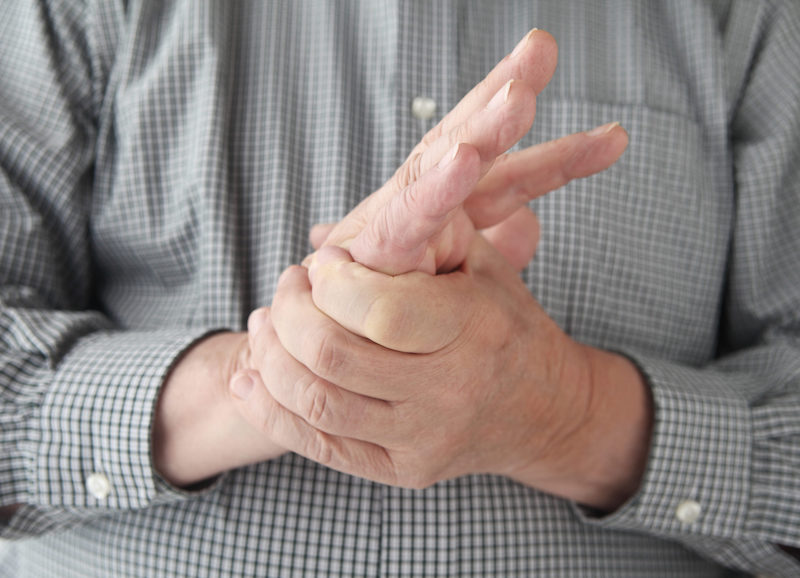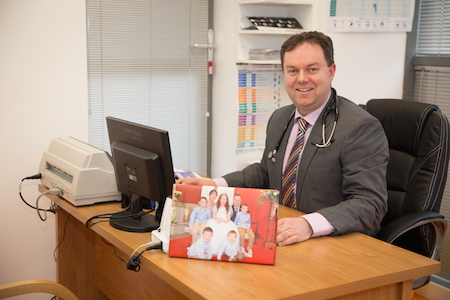This week Dr Ciarán Roarty of Scally McDaid Roarty Medical Practice talks about the common problem of pins and needles and numbness.
Numbness is when you can’t feel anything on a certain part of your body. Pins and needles is a tingling sensation that often occurs in the hands or feet.
It is often due to pressure on nerves supplying that area or pressure on the blood vessels supplying those nerves.
It can happen after sitting or lying awkwardly which puts pressure on a nerve but occasionally it may have a more serious underlying cause, for example Diabetes.
What are the common causes of numbness and pins and needles?
Numbness and pins and needles tend to occur when you lose normal sensation over an area of your body. Pressure cuts off the blood supply to the nerves that carry messages or sensations back to the brain and it can affect anywhere in the body. The face, hands or feet for example may be affected.
There are a large number of causes but some of the more common ones include:
1.Presssure – for example from tight shoes or sleeping awkwardly. This will usually resolve when the cause has been rectified.
2.A trapped nerve. This is quite common. A slipped disc or back problem can cause problems with a nerve which runs down your leg. Similarly, a trapped or pinched nerve in the neck can cause numbness or pins and needles from your neck, right down your arm to your fingers. Carpel tunnel syndrome is caused by pressure on a nerve at your wrist.
3.Diabetes. Damage to the small blood vessels that supply the nerves in your hands and feet can lead to numbness, pain and pins and needles. This can make walking difficult and affect your grip
4. Certain medicines can cause these symptoms but your doctor will be familiar with these.
5 Injury e.g. from heavy vibrating tools which may damage nerves can result in pins and needles.
6.Alcohol misuse may damage nerves
7.Certain medical conditions cause damage to nerves for example, stroke, multiple sclerosis and brain tumours. Though very serious, these conditions are relatively rare and all will cause other symptoms along with numbness or pins and needles.
8. Vitamin B12 deficiency. Your doctor will most likely test for this if you complain of these symptoms. This deficiency can occur if you have pernicious anaemia or are vegan.
Can I do anything to help?
Common sense things like loosening tight shoes or standing up and shaking a limb if you have been sitting on it for a while will help. Taking care of your back by exercising and avoiding incorrect lifting will help prevent back problems. Repetitive movements should be avoided or minimised if possible and taking regular breaks from a task helps. Good posture, avoiding excess alcohol and taking a good diet with plenty of vitamin B12 will also help reduce the chances of these type of symptoms. Taking good care of your Diabetes is also important.
Do I need medical help?
Immediate help is required if you also notice loss of power particularly down one side of your body, as this could be a stroke. If the pins and needles stay or repeatedly come and go, you should see your doctor.
What kind of treatments are available?
This depends on the cause. Most cases are managed by your GP who will take a thorough history and possibly obtain blood tests. Certain circumstances may require further investigations and treatment.
The above information is intended as advice only and should you have any concerns please contact your own Doctor.
Dr Ciarán Roarty MB, BCh BAO MICGP DRCOG Grad. Cert. Obst. Ultrasound is a full-time GP at Scally McDaid Roarty Medical Practice, Scally Place, Letterkenny, Tel 0749164111









